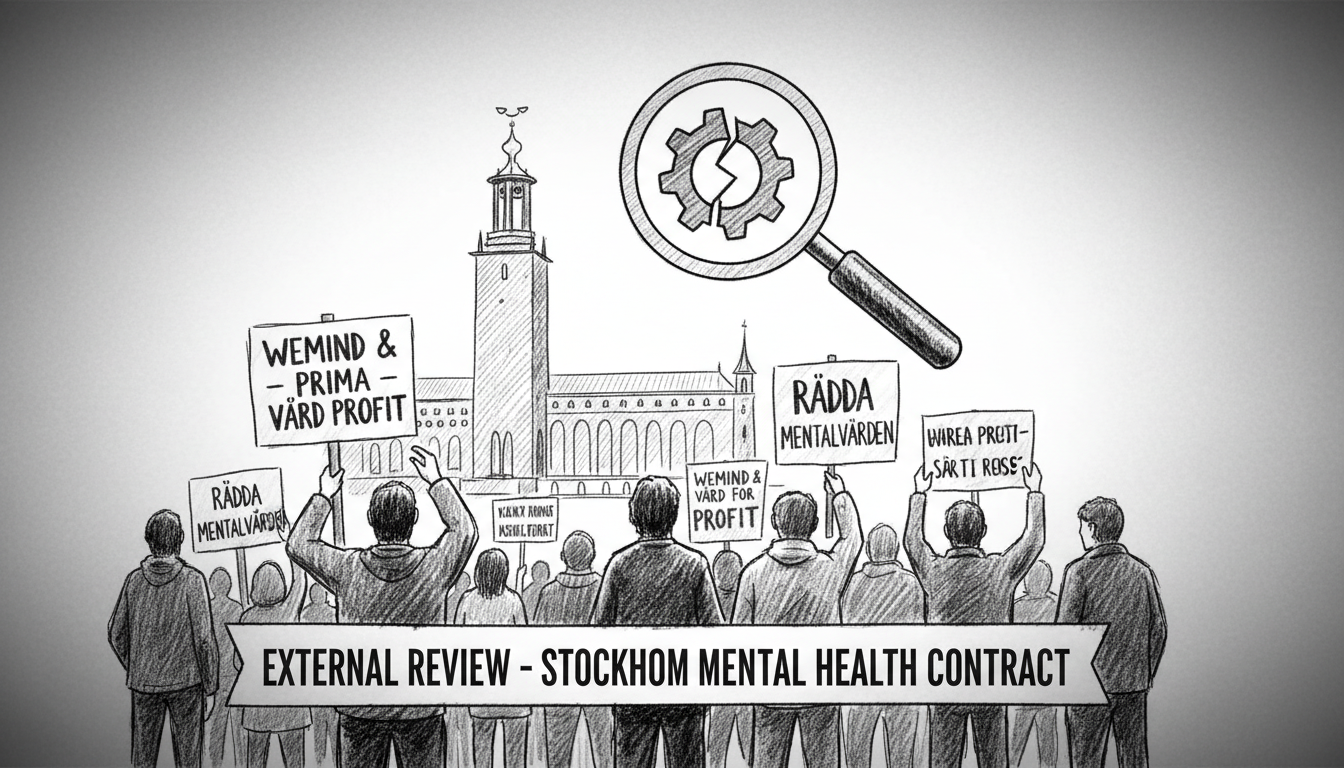Stockholm faces a major healthcare controversy as regional officials launch an external review of mental health service contracts. The decision follows weeks of protests by healthcare workers and patients who report deteriorating conditions since new providers took over.
Mental health staff describe immediate job cuts when the new contracts began. One employee who joined the protests said they received layoff notices on the very first day of the new agreement. Patients and workers both report that cost-cutting demands have created poor working environments and reduced care quality.
The regional psychiatric committee met amid public demonstrations demanding contract cancellation. Political parties proposed different solutions, with the Christian Democrats pushing for immediate contract termination. Instead, the Left Party's proposal for an external review of providers Wemind and Prima gained approval.
Sandra Ivanovic Rubin, chair of the psychiatric committee, stated officials are considering all options but currently lack legal grounds to cancel the agreements. The current contracts with Wemind and Prima remain valid through 2029 unless the review reveals grounds for termination.
This situation reflects broader tensions in Sweden's healthcare system, where regional governments manage healthcare procurement through competitive bidding. The model aims to control costs but often faces criticism when quality appears compromised. Stockholm's mental health services have been particularly contentious, with previous contracts also generating controversy.
Sweden's healthcare system operates through 21 regional councils that manage most public healthcare services. These councils use public procurement processes that typically favor cost efficiency, creating recurring tensions between budgetary concerns and healthcare quality. The current mental health contract protests echo similar conflicts seen in other Swedish regions over recent years.
International observers should note that Sweden's decentralized healthcare model differs significantly from centralized systems in other Nordic countries. This structure means healthcare quality can vary substantially between regions, with Stockholm often serving as a bellwether for national trends.
The external review will examine whether Wemind and Prima can maintain adequate service quality under their current contract terms. Regional officials emphasize they will take appropriate action based on the review's findings, though specific timelines for the investigation remain unclear.
What does this mean for Stockholm residents needing mental health support? Current services continue under existing arrangements, but patients and families report growing concerns about accessibility and treatment quality. The situation highlights ongoing challenges in balancing healthcare costs with patient needs in Sweden's public system.

